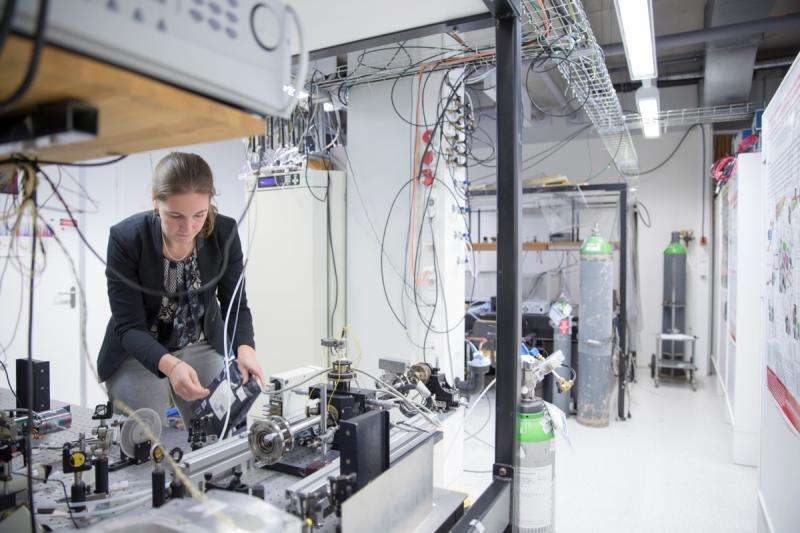Bacterial infection in exhaled breath

Although ethylene (or ethene) is best known as a plant hormone, humans also produce it as consequence of oxidative stress, caused, for example, by UV radiation from the sun. An international team led by Simona Cristescu from Radboud University found that ethylene is produced during inflammation and quickly released in exhaled breath as a biomarker of bacterial infection, thus having important clinical implications. The study has been published by Scientific Reports on July 31.
Traces of ethylene were detected by laser spectroscopy as part of the systemic inflammatory response to bacterial infection, both in isolated blood leukocytes as well as in a controlled experiments with healthy volunteers. In the publication, specialists from the Radboud Trace Gas Facility and several medical groups from Radboud UMC, Johns Hopkins University and the Imperial College London explain how ethylene is being formed as a product of the so called respiratory burst. This is a key component of the immune system, when the body releases reactive oxygen species to fight against invading bacteria. Not only the targeted bacteria suffer from this, the human tissue gets hurt as well. Oxidation of lipids in the cell walls result in ethylene emanation.
Simona Cristescu from Radboud University's Institute for Molecules and Materials explains the importance of the finding: "Our results highlight that ethylene release is an early biomarker of bacterial infection. In humans, ethylene was detected at least half an hour earlier than the increase of blood levels of inflammatory cytokines and stress-related hormones. For patients in intensive care this could mean a difference between life and death."
Laurent Paardekooper, researcher at the Radboud University medical center (Radboudumc) and first author of the article, explains: "The first possible application I see is continuous monitoring of patients that are on artificial respiration. These people have an increased risk of dangerous infections, and because their breath is already going through a machine, it is easy to monitor it for ethylene."
According to Cristescu, taking breath samples for analysis is very easy for both patients and staff. Sensor Sense, a spinoff company of Radboud University's Trace Gas Facility, markets a small device that hospitals can use for real-time analysis of exhaled ethylene.
More information: Laurent M. Paardekooper et al. Ethylene, an early marker of systemic inflammation in humans, Scientific Reports (2017). DOI: 10.1038/s41598-017-05930-9

















